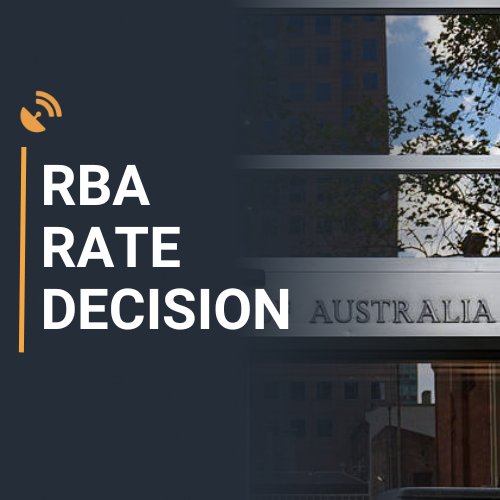- GBP/JPY witnessed heavy selling in reaction to the BoE Governor Bailey’s dovish remarks.
- Bailey said that the central bank could become "a bit more activist" on interest rate cuts.
- Middle East tensions benefit the JPY’s relative safe-haven status and weigh on the cross.
The GBP/JPY cross continues with its struggle to find acceptance above the 195.00 psychological mark for the second time in two weeks and retreats sharply from a one-week high touched earlier this Thursday. The downward trajectory drags spot prices to the 192.25-192.20 area during the first half of the European session and is exclusively sponsored by the emergence of heavy selling around the British Pound (GBP).
In an interview with the Guardian, the Bank of England (BoE) Governor Andrew Bailey said that there was a chance that the central bank could become a bit more aggressive in cutting rates if there's further good news on inflation. Traders upped their bets for another 25-basis points interest rate cut by the BoE at its November meeting. This, in turn, drags UK gilts lower, along with the GBP, and prompts aggressive selling around the GBP/JPY cross.
Apart from this, a further escalation of geopolitical tensions in the Middle East benefits the Japanese Yen's (JPY) relative safe-haven status and contributes to the offered tone surrounding the currency pair. Iran launched over 200 ballistic missiles at Israel on Tuesday, while the latter conducted a precise air strike and bombed central Beirut in Lebanon during the early hours of Thursday, raising the risk of a full-blown war and undermining the risk sentiment.
The JPY bulls, however, refrain from placing aggressive bets in the wake of the uncertainty over future interest rate hikes by the Bank of Japan (BoJ). In fact, Japan's new Prime Minister Shigeru Ishiba said on Wednesday that the country is not in an environment for an additional rate increase. Adding to this, Japan's newly appointed economy minister, Ryosei Akazawa, expects the BoJ to make careful economic assessments when raising interest rates again.
Furthermore, BoJ board member Asahi Noguchi stated that the central bank must patiently maintain loose monetary conditions and will make gradual adjustments while carefully assessing whether inflation sustainably reaches the 2% target. This, in turn, warrants some caution before positioning for any further depreciating move for the GBP/JPY cross and supports prospects for an extension of the range-bound price action witnessed since the beginning of the current week.
BoE FAQs
The Bank of England (BoE) decides monetary policy for the United Kingdom. Its primary goal is to achieve ‘price stability’, or a steady inflation rate of 2%. Its tool for achieving this is via the adjustment of base lending rates. The BoE sets the rate at which it lends to commercial banks and banks lend to each other, determining the level of interest rates in the economy overall. This also impacts the value of the Pound Sterling (GBP).
When inflation is above the Bank of England’s target it responds by raising interest rates, making it more expensive for people and businesses to access credit. This is positive for the Pound Sterling because higher interest rates make the UK a more attractive place for global investors to park their money. When inflation falls below target, it is a sign economic growth is slowing, and the BoE will consider lowering interest rates to cheapen credit in the hope businesses will borrow to invest in growth-generating projects – a negative for the Pound Sterling.
In extreme situations, the Bank of England can enact a policy called Quantitative Easing (QE). QE is the process by which the BoE substantially increases the flow of credit in a stuck financial system. QE is a last resort policy when lowering interest rates will not achieve the necessary result. The process of QE involves the BoE printing money to buy assets – usually government or AAA-rated corporate bonds – from banks and other financial institutions. QE usually results in a weaker Pound Sterling.
Quantitative tightening (QT) is the reverse of QE, enacted when the economy is strengthening and inflation starts rising. Whilst in QE the Bank of England (BoE) purchases government and corporate bonds from financial institutions to encourage them to lend; in QT, the BoE stops buying more bonds, and stops reinvesting the principal maturing on the bonds it already holds. It is usually positive for the Pound Sterling.
Information on these pages contains forward-looking statements that involve risks and uncertainties. Markets and instruments profiled on this page are for informational purposes only and should not in any way come across as a recommendation to buy or sell in these assets. You should do your own thorough research before making any investment decisions. FXStreet does not in any way guarantee that this information is free from mistakes, errors, or material misstatements. It also does not guarantee that this information is of a timely nature. Investing in Open Markets involves a great deal of risk, including the loss of all or a portion of your investment, as well as emotional distress. All risks, losses and costs associated with investing, including total loss of principal, are your responsibility. The views and opinions expressed in this article are those of the authors and do not necessarily reflect the official policy or position of FXStreet nor its advertisers. The author will not be held responsible for information that is found at the end of links posted on this page.
If not otherwise explicitly mentioned in the body of the article, at the time of writing, the author has no position in any stock mentioned in this article and no business relationship with any company mentioned. The author has not received compensation for writing this article, other than from FXStreet.
FXStreet and the author do not provide personalized recommendations. The author makes no representations as to the accuracy, completeness, or suitability of this information. FXStreet and the author will not be liable for any errors, omissions or any losses, injuries or damages arising from this information and its display or use. Errors and omissions excepted.
The author and FXStreet are not registered investment advisors and nothing in this article is intended to be investment advice.
Recommended content
Editors’ Picks

EUR/USD drops to multi-week lows below 1.1050 on USD strength
EUR/USD stays under bearish pressure and trades at a fresh multi-week low below 1.1050 on Thursday. Sustained USD strength despite the worse-than-expected Jobless Claims data weighs on the pair, while rising bets for an ECB rate cut in October undermine the Euro.

GBP/USD trades deep in red near 1.3100 after Bailey's dovish remarks
GBP/USD loses more than 1% on the day and trades at around 1.3100. The pair bears the brunt of the dovish comments from BoE Governor Andrew Bailey, who said that the central bank could become 'more activist' on rate cuts if inflation eases.

Gold fluctuates in a narrow range near $2,650
Gold oscillates in a tight range at around $2,650 after bets fade that the Fed will continue slashing interest rates aggressively. Support for Gold comes from increasing geopolitical risks and lower interest rates globally.

ISM Services PMI Preview: US services sector expected to expand in September
US ISM Services PMI is seen improving a tad in September. The US services sector is expected to remain within the expansionary territory. Investors continue to favour a soft-landing scenario of the US economy.

RBA widely expected to keep key interest rate unchanged amid persisting price pressures
The Reserve Bank of Australia is likely to continue bucking the trend adopted by major central banks of the dovish policy pivot, opting to maintain the policy for the seventh consecutive meeting on Tuesday.

Five best Forex brokers in 2024
VERIFIED Choosing the best Forex broker in 2024 requires careful consideration of certain essential factors. With the wide array of options available, it is crucial to find a broker that aligns with your trading style, experience level, and financial goals.